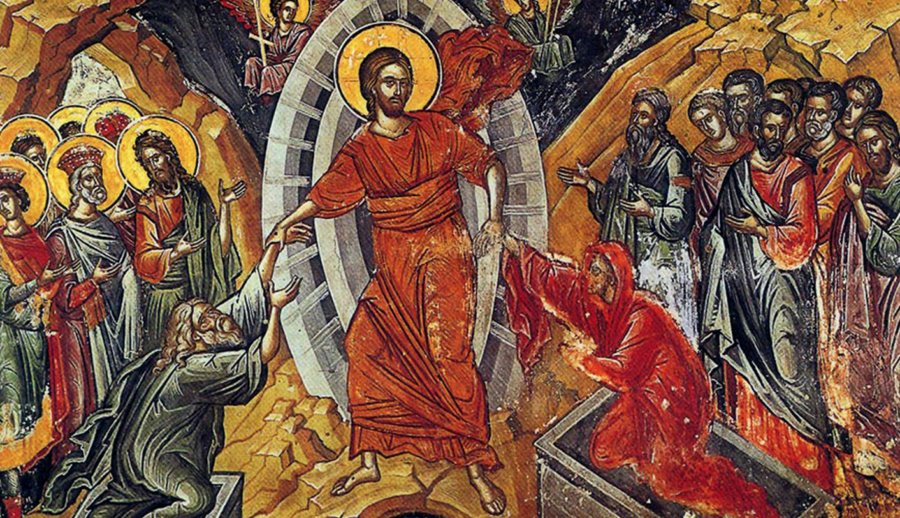I started a new job working as a high school humanities teacher for a public charter school the second week of July. As one of many new teachers coming into the charter school network, I have spent the last two weeks sitting through orientation lectures and training seminars. Between sessions on “Student Engagement” and “Discussion for Your Classroom” I’ve had the pleasure of meeting other new teachers. I’ve spent the last ten years of my life meeting a lot of new people: people at college, people at work, people at several different churches across the states, people at graduate school, people in my neighborhood. In short, I feel decently practiced at asking those typical getting-to-know-you questions. My favorite? Easy. Where are you from? It is simple enough to answer briefly, but deep enough to get into some real detail. Sometimes people, like myself, make really specific distinctions. I’m coming to Arizona from Connecticut, but I’m from Fullerton, California.
While driving across the states with my husband and our friend, Jack, earlier this summer, the three of us spent some time conversing about the question of “from-ness,” a question Jack had been considering. Jack is also a teacher and this year both he and Richard will be teaching American History and Literature to high school freshman. It seems that subject of history circles around this very question of where we come from and how the places, situations, and circumstances we come from came to be. It is a search for our deeper origins.
As I recover from “YDSD” (post-traumatic stress disorder for Yale Divinity School students) and begin to settle into new rhythms of life here in Arizona, I’ve been periodically picking up Karl Barth’s essay, Christ and Adam: Man and Humanity in Romans 5. I was told it was a good “grounding” book and a sense of “grounded-ness” was just what I felt I needed. Barth’s analysis of Romans 5 is truly some beautiful theological work. He reads with depth and precision, and presents the argument he finds with clarity and eloquence. Reading Barth has always felt a bit like reading poetry. Consequentially, I will not attempt to recapitulate Barth’s entire argument, but highlight an essential point he identifies as foundational to Romans 5, a truth fundamental to the human search for “from-ness.”
Upon reading Romans 5, Barth claims that the life, death, and resurrection of Christ is God’s love toward mankind and that this love is decisive about humanity. Like Adam, Christ is representative of humanity, but Christ is more than Adam. Christ holds an unique place over and above all men, he includes all humanity within himself. Our true anthropology isn’t found in Adam, but Christ.
This is the essential point: Barth insists that “Paul does not limit his context to Christ’s relationship to believers, but gives fundamentally the same account of His relationship to all men. The context is widened from Church history to world history, from Christ’s relationship to Christians to His relationship to all men” (75-76). Christ is the head all humanity, not Christians alone. For St. Paul clearly writes, “Christ died for the ungodly” (Rom. 5:6). Regardless of our belief or rebellion, all humanity has been included under the headship of Christ through his perfect obedience, unjust death, and miraculous resurrection.
In summary, Barth writes, “Christ is here presented as something that dominates and includes all men. The nature of Christ objectively makes an objective difference to the life and destiny of all men. Through Christ grace overflows upon them, bringing them pardon and justification and opening before them a prospect of life with God.” (76)
What if we chose to evangelize this way?
We would still inevitably need to have the “sin conversation.” But what if we began with this statement: that Christ has already brought you into Himself? Your life, your destiny, your nature essentially comes from Jesus Christ. Perhaps, as Barth seems to suggest, this revelation of our true “from-ness” will bring us to the threshold of faith. For, “We have come to Christ as believers and Christians, because we had already come from Christ, so that there was nothing else for us to do but believe in Him” (77).
–
Barth, Karl. Christ and Adam: Man and Humanity in Romans 5. Translated by T. A. Smail. Eugene, OR: Wipf and Stock Publishers, 2004.





1 Comment
Leave your reply.